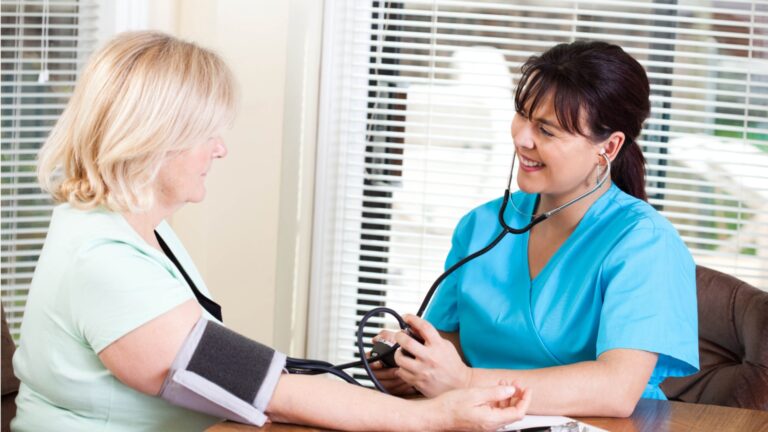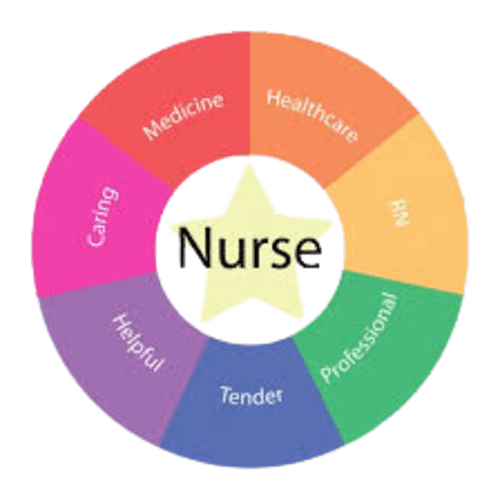What Is A Practical Nurse?
What is a Practical Nurse?

A practical nurse, or licensed practical nurse (LPN), is a healthcare professional who provides basic and specialized medical care to a wide range of patients. LPNs work under the supervision of registered nurses (RNs) and physicians, and they play a vital role in the healthcare team.
Job Duties:

LPNs perform a variety of tasks, including:
- Measuring and documenting vital indicators, including blood pressure, temperature, and pulse
- Administering medications
- Providing wound care
- Assisting individuals with daily tasks like bathing, getting dressed, and eating
- Monitoring patients for changes in condition
- Educating patients and their families about their health and care
- Communicating with other members of the healthcare team
Educational Requirements:
Achieving the status of a Licensed Practical Nurse (LPN) necessitates the successful completion of an accredited practical nursing program. These programs typically take one year to complete and are offered at community colleges and vocational schools.
Salary Expectations:
The median annual salary for LPNs in the United States was $47,480 in May 2021, according to the Bureau of Labor Statistics. The highest-paid LPNs earned more than $66,880, while the lowest-paid LPNs earned less than $35,610.
Work Environment:
Licensed Practical Nurses (LPNs) have the opportunity to work in a diverse range of healthcare environments, such as:
- Hospitals
- Nursing homes
- Long-term care facilities
- Clinics
- Schools
- Home healthcare agencies
- Private practices
Why Become a Practical Nurse?

There are many reasons to become a practical nurse. LPNs provide essential care to patients in a variety of settings, and they play a vital role in the healthcare team. LPNs also have good job prospects and can earn a competitive salary.
If you are interested in a career in healthcare, becoming a practical nurse is a great option. LPNs provide essential care to patients and have good job prospects.
Here are some additional benefits of becoming a practical nurse:
- Job security: The demand for practical nurses is expected to grow faster than average over the next decade, according to the Bureau of Labor Statistics.
- Flexibility: LPNs can work full-time, part-time, or on-call. They can also choose to work in a variety of healthcare settings.
- Personal satisfaction: LPNs have the opportunity to make a real difference in the lives of their patients.
Qualities of a Practical Nurse:
In addition to the educational and training requirements, there are some personal qualities that are important for practical nurses to have. These qualities include:
- Compassion: LPNs should be compassionate and caring towards their patients.
- Patience: LPNs often work with patients who are in pain or discomfort. They must possess patience and empathy.
- Communication skills: LPNs need to be able to communicate effectively with patients, their families, and other members of the healthcare team.
- Organizational skills: LPNs need to be able to manage their time effectively and organize their work so that they can provide the best possible care to their patients.
- Problem-solving skills: LPNs need to be able to think critically and solve problems quickly and efficiently.
If you have the qualities listed above, you may be well-suited for a career as a practical nurse.
How to Become a Practical Nurse
To become a practical nurse, you must complete the following steps:
- Earn a high school diploma or GED.
- Complete an accredited practical nursing program.
- Pass the National Council Licensure Examination for Practical Nurses (NCLEX-PN).
- Apply for a license to practice as a practical nurse in your state.
Once you have completed these steps, you will be able to work as a licensed practical nurse.
Conclusion:
Becoming a practical nurse is a rewarding career choice. LPNs provide essential care to patients and have good job prospects. If you are interested in a career in healthcare, becoming a practical nurse is a great option.
Additional Resources:
- National League for Nursing (NLN): https://www.nln.org/
- National Council of State Boards of Nursing (NCSBN): https://www.ncsbn.org/
- Bureau of Labor Statistics (BLS): https://www.bls.gov/ooh/healthcare/licensed-practical-and-licensed-vocational-nurses.html
How to Be a Successful Practical Nurse
Once you have become a licensed practical nurse, there are some things you can do to be successful in your career:
- Be a lifelong learner. The field of nursing is constantly changing, so it is important to stay up-to-date on the latest trends and developments. You can do this by reading nursing journals and books, attending conferences, and taking continuing education courses.
- Be a team player. LPNs often work with a variety of healthcare professionals, including RNs, physicians, and therapists. It is important to be able to collaborate effectively with others to provide the best possible care for your patients.
- Be an advocate for your patients. LPNs play an important role in advocating for their patients’ needs. This includes speaking up for their patients when they have concerns and ensuring that they receive the care they deserve.
- Be compassionate and caring. LPNs should treat their patients with compassion and respect. They should also be understanding of their patients’ needs and concerns.
Here are some additional tips for success:
- Be organized and efficient. LPNs have a lot of responsibilities, so it is important to be organized and efficient in order to manage their time effectively.
- Be able to work under pressure. LPNs often work in fast-paced and stressful environments. It is important to be able to remain calm and focused under pressure.
- Be able to handle difficult patients. LPNs may encounter difficult patients from time to time. It is important to be able to deal with these patients in a professional and compassionate manner.
With hard work and dedication, you can have a successful and rewarding career as a practical nurse.
Conclusion:
Becoming a practical nurse is a great way to start a career in healthcare. LPNs play a vital role in the healthcare team and provide essential care to patients in a variety of settings. If you are interested in a career as a practical nurse, there are many resources available to help you get started.
